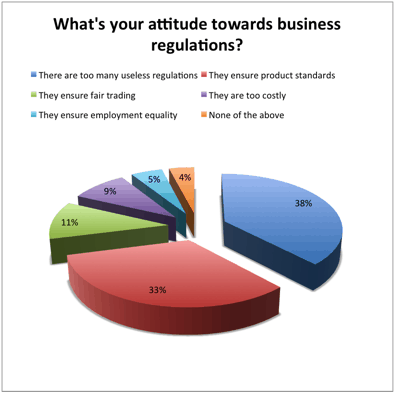
Last week's poll gave us some mixed messages. Although several comments were in support of regulations - with some even pinpointing an advantage we hadn't mentioned in our response options, their contribution to environmental protection - the largest group of the 281 respondents, 38 per cent, chose the option stating that there are too many useless regulations. The next group, on 33 per cent, said that they valued regulations contribution to ensuring product standards. This was a closer result than it might appear, with only eight votes separating first and second place.
There was then a big gap to the next respondents. Down on 11 per cent was a group appreciating regulations' protection of fair trading, while 9 per cent said that regulations were too costly. Just 5 per cent valued regulations for their employment equality assurance, and four per cent declined to pick an option.
Please continue to send us your opinions on this subject.





Collaboration to address viable solutions for VAWG database
Interesting to see what the funders say too..."The Innovation Launchpad Network+, .... brings together leading universities, the Catapult Network and...